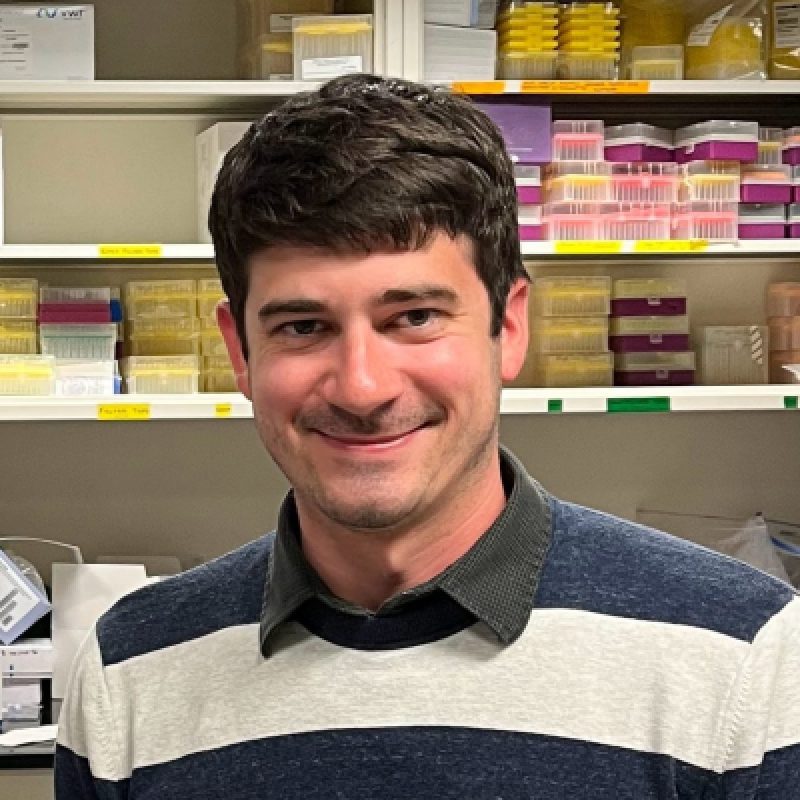Tag: Genetics, Genomics and Cell Biology of Infection
-

Joshua Kerkaert
Josh’s interest in fungal biology started while earning a BS in Microbiology at the University of Minnesota where he did research on the human fungal pathogens Cryptococcus neoformans and Blastomyces dermatitidis in the Nielsen lab at the University of Minnesota. Josh went on to pursue a Ph.D. in[...] -

Raina Plowright
Our lab seeks to understand and prevent spillover of zoonotic pathogens from wildlife to other species. We develop the science of pandemic prevention through collaborative, transdisciplinary science. We work in the field, the lab, and in silico, all with a commitment to translate the science[...] -

J. Brooks Crickard
The Crickard lab studies chromosome maintenance pathways with a focus on homologous recombination. We use genetic approaches in combination with single molecule imaging to dissect molecular mechanisms. An example of a student project is expressing and purifying proteins to understand the role of signaling kinases[...] -

Anthony Hay
The Hay lab uses methods from microbial ecology, physiology, genomics, and genetics to understand how human activities affect microbes in diverse environmental settings. For instance, we study how handling of milk collection kits affects the microbiome of pumped human milk. Students will use genomics to[...] -

Andrew Flyak
The Flyak lab studies human antibody response to viral pathogens. We try to answer questions like, how do human antibodies neutralize rapidly mutating viruses? And, how can we design vaccines that mimic effective antibody responses seen in some individuals? In our lab, we isolate antibodies[...] -

Scott Keith
Scott’s research investigates how endocrine signaling networks regulate animals’ physiological responses to pathogenic microbes. He uses the fruit fly Drosophila melanogaster as a genetically tractable model to investigate the mechanisms by which several key insect hormones and their cognate nuclear receptors both directly and indirectly[...] -

Lori Huberman Lab
The Huberman lab’s research focuses on how fungi sense and efficiently utilize nutrients in their environment. Fungi play an essential role in nutrient cycling, cause a vast spectrum of diseases in plants and mammals, and have a substantial role in the biotechnology and food industries. Central to all of these areas of ecological, health, and […]
-

Jaehee Kim
The Kim Lab focuses on the general fields of population genetics and evolutionary biology. Dr. Kim is interested in computational problems relevant to understanding evolutionary processes and population dynamics, and in development and application of statistical methods for inference from genetic data. In addition to[...] -

Sarah Caddy
We study positive and negative interactions between viruses and antibodies. We are particularly interested in maternal antibodies, which are transferred from mother to infant to protect against neonatal infections. However, these antibodies can also block the infant response to vaccines. Despite this phenomenon being identified[...] -

C Drew Harvell
We study the transmission and impacts of infectious disease in a changing ocean and mechanisms of immune function in marine invertebrates. We work to identify the value of intact ocean biodiversity and develop strategies towards a healthier ocean.
